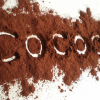Cannabinoids have therapeutic potential in a variaty of disorders, personally my adhd is resistant to stimulant treatment but i have read case reports of people that dont respond to them find relief with cannabis wich made me look into it more.
Available cannabinoids are:
Cannabis
AM2201
MAM2201
AKB48
UR-144
And more.
They all have differened affinity's for the cannabinoid receptors, ur-144 is a selective CB2 agonist, its been discussed more in debt in this thread:
http://www.longecity...ve-cb2-agonism/
Some evidence behind their therapeutic potential:
Treating depression with cannabinoids
Kurt Blass
Lindengasse 27/10, 1070 Vienna, Austria
Abstract
Although a variety of drugs are available for the treatment of depression, therapy is not effective in
all cases and finding alternative options is desirable. Results from animal studies, anecdotal experience reported by patients using cannabis and observations from clinical studies where cannabinoids were used in serious diseases suggest an anti-depressive potential of cannabinoid receptor agonists. From 2003 to 2006, 75 patients suffering from depression, stress and burnout syndrome were successfully treated in a practice for general medicine with the cannabis ingredient
dronabinol, alone or in combination with other antidepressants. Two case studies will be presented. The presented observations suggest that dronabinol has an antidepressive potential that can
readily be used in medical practice.
Key words: Depression, burnout, cannabinoid, cannabis, dronabinol
http://www.letfreedomgrow.com/cmu/depression_2008_02_2.pdfCase 1
Ms. H. came to my practice six years ago, at the age of
48. She had a long psychiatric record with episodes of
depression and the abuse of alcohol and drugs, particularly of benzodiazepines. A former teacher, she is now
retired but continues to work as an actress.
At the onset of the therapy the patient was in a difficult
situation. Her father had recently passed away; she was
highly depressed, sometimes even suicidal. Heavy
abuse of drugs, such as oxazepam, and of alcohol further complicated her situation. Following an extensive
discussion a treatment with oral dronabinol of 5 – 7.5
mg per day was started.
After 6 years of using dronabinol Ms. H. is now very
experienced with the use of the drug. Depending on her
symptoms, she takes between 2 and 4 capsules of 2.5
mg per day. She is no longer addicted to benzodiazepines and does currently not drink alcohol. As supplementary therapy she takes 2.5 mg per day of olanzapin
(an atypical neuroleptic), 25 mg of venlafaxin (an
SNRI) and, if needed, trazodon, SSRI. She reports that
the dronabinol therapy has improved her quality of life
significantly. She feels more stable than before and the
chronically reoccurring episodes of depression are less
severe. Her speed of reaction when operating a vehicle
is impaired. Before extended car trips she has thus
periodically suspended dronabinol for typically one
week, which has resulted in psychological withdrawal
symptoms.
Case 2
Ms. F. first visited our practice at the age of 22 where
she received treatment over a 12-month period. At that
time, the patient suffered from stress related headaches,
migraine, asthma, neurodermatitis and an instable emotional personal disorder. Most prominent was an acute
depressive syndrome, for which Ms. F. had already
received treatment in the psychiatric clinic at Vienna
General Hospital.After repeatedly dropping out of school and frequent
job changes the patient tried, despite a lack of family
contacts, to improve her dismal social and physical
conditions. She was also rather unhappy with her having to consume up to ten prescription medications. In
addition to anti-depressants, such as fluoxetine and
mianserin, neuroleptics, such as prothipendyl, sedatives
and anti-allergic agents, such as hydroxyzine, NSAR,
such as diclofenac, proton pump inhibitors, such as
rabeprazole, analgesics, such as propyphenazone and
tramadol, she daily consumed anti-asthmatics, such as
terbutaline sulfate as prescribed by several other physicians.
Because the patient did not want to continue this multidrug treatment she came to our practice in search for a
more simple and natural treatment, involving no more
than two drugs. Primary objective of the treatment was
to improve her acutely depressive condition, which had
not improved despite the use of multiple drugs. Following an extensive consultation the patient opted for a
monotherapy with dronabinol. After several days the
initial dose of 2.5 mg was raised to 7.5 mg daily. After
several days of treatment we observed a significant
improvement of her depressive condition and of the
concurrently occurring illnesses.
During the first month of therapy the daily dronabinol
dose was raised to 10 mg and 12 month after starting
her therapy the physical and psycho-social condition of
the patient had stabilized at that dose. Subsequently,
the patient resumed relationships with her family, relocated to a different state and left our practice.
http://www.cannabis-med.org/english/journal/en_2008_01_1.pdfCannabis improves symptoms of ADHD
Peter Strohbeck-Kuehner, Gisela Skopp, Rainer Mattern
Institute of Legal- and Traffic Medicine, Heidelberg University Medical Centre, Voss Str. 2, D-69115 Heidelberg, Germany
Abstract
Attention-deficit/hyperactivity disorder (ADHD) is characterized by attention deficits and an altered activation level. The purpose of this case investigation was to highlight that people with
ADHD can benefit in some cases from the consumption of THC. A 28-year old male, who showed
improper behaviour and appeared to be very maladjusted and inattentive while sober, appeared to
be completely inconspicuous while having a very high blood plasma level of delta-9-
tetrahydrocannabinol (THC). Performance tests, which were conducted with the test batteries
ART2020 and TAP provided sufficient and partly over-averaged results in driving related performance. Thus, it has to be considered, that in the case of ADHD, THC can have atypical effects
and can even lead to an enhanced driving related performance.
Improvement in Refractory Obsessive Compulsive Disorder With Dronabinol
To the Editor: It has been reported that 40%–60% of patients with obsessive-compulsive disorder (OCD) do not respond to first-line treatment. Treatment options for these patients include switching to another agent or augmentation (1). We report on two patients with treatment-resistant OCD and comorbid axis I disorders who responded to an augmentation with the cannabinoid dronabinol.
“Mrs. L” was a 38-year-old woman who was admitted with recurrent major depression and OCD (Yale-Brown Obsessive Compulsive Scale score: 20) after outpatient treatment with paroxetine (60 mg) for 8 months and cognitive behavioral therapy (CBT) were not efficacious. Switching to clomipramine (300 mg) resulted in partial response after 12 weeks of treatment. Based on the patient’s report that smoking marijuana usually relieved her symptoms, an augmentation with dronabinol (2.5%; 10 mg t.i.d.) was started. The prior medication was continued. While undergoing treatment with dronabinol (2.5%), the patient’s OCD symptoms decreased significantly within 10 days (Yale-Brown Obsessive Compulsive Scale score: 10).
“Mr. K” was a 36-year-old man with schizophrenia and OCD who was admitted for deterioration of psychotic and obsessive symptoms (Yale-Brown Obsessive Compulsive Scale score: 23). During his course of illness, Mr. K had been treated with antipsychotics (including haloperidol, olanzapine, risperidone, quetiapine, and aripiprazole), both in monotherapy and in combination with selective serotonin reuptake inhibitors. His OCD symptoms in particular remained predominately treatment resistant. Treatment with clozapine (400 mg), which he had already received for more than 1 year (in combination with paroxetine [60 mg] for 13 weeks) resulted only in partial response of his psychotic and OCD symptoms. Switching paroxetine to clomipramine (for another 10 weeks), followed by an additional course of 18 electroconvulsive therapy treatments (right unilateral high dose), did not improve the patient’s psychotic or OCD symptoms significantly. After the addition of dronabinol to ongoing treatment with clomipramine (150 mg) and clozapine (400 mg), a significant reduction of OCD symptoms was observed within 2 weeks (Yale-Brown Obsessive Compulsive Scale score: 15). In order to prevent psychotic deterioration, dronabinol (2.5%) was carefully increased to 10 mg b.i.d.
Apart from anticholinergic symptoms that preceded the addition of dronabinol (patient 1: dry mouth, constipation; patient 2: constipation, hypotension), both patients reported no side effects. In particular, there was no deterioration of psychotic or mood disorder symptoms.
Based on data from case reports and small clinical trials suggesting that cannabinoids can reduce symptoms of tic disorder (2) and on findings from genetic studies linking tic disorder with OCD (3), we hypothesized that cannabinoids might also reduce OCD symptoms. Moreover, there is evidence suggesting that besides serotonergic and dopaminergic systems, glutamatergic hyperactivity is involved in the pathophysiology of OCD (4, 5). This view is supported by data suggesting the efficacy of glutamate modulating drugs, such as topiramate, memantine, riluzole, or N-acetylcysteine, in the treatment of OCD (6). It has been reported that cannabinoids inhibit glutamate release in the CNS (7, 8). Additionally, cannabinoid type 1 (CB1) receptors are distributed abundantly in the striatum (8), a brain region frequently associated with OCD. Hence, it can be speculated that the anti-obsessive effect observed in our patients may have been a consequence of the glutamate modulation of the cannabinoid dronabinol. Since it is well known that cannabinoids may trigger psychotic symptoms in patients with schizophrenia (8), caution is warranted when prescribing for patients with a history of the disorder.
1.Kaplan A, Hollander E: A review of pharmacologic treatments for obsessive-compulsive disorder. Psychiatr Serv 2003; 54:1111–11182.Müller-Vahl KR, Schneider U, Prevedel H, Theloe K, Kolbe H, Daldrup T, Emrich HM: Delta-9-tetrahydrocannabinol (THC) is effective in the treatment of tics in Tourette syndrome: a 6-week randomized trial. J Clin Psychiatry 2003; 64:459–4653.Shavitt RG, Hounie AG, Rosário Campos MC, Miguel EC: Tourette’s syndrome. Psychiatr Clin North Am 2006; 29:471–4864.Arnold PD, Sicard T, Burroughs E, Richter MA, Kennedy JL: Glutamate-transporter gene SLC1A1 associated with obsessive-compulsive disorder. Arch Gen Psychiatry 2006; 63:769–7765.Chakrabarty K, Bhattacharyya S, Christopher R, Khanna S: Glutamatergic dysfunction in OCD. Neuropsychopharmacology 2005; 30:1735–17406.Pittenger C, Krystal JH, Coric V: Glutamate-modulating drugs as novel pharmacotherapeutic agents in the treatment of obsessive-compulsive disorder. NeuroRx 2006; 3:69–817.Fujiwara M, Egashira N: New perspectives in the studies on endocannabinoid and cannabis: abnormal behaviors associate with CB1-receptor and development of therapeutic application. J Pharmacol Sci 2004; 96:363–3668.Pacher P, Bátkai S, Kunos G: The endocannabinoid system as an emerging target of pharmacotherapy. Pharmacol Rev 2006; 58:389–462
I just tried some ur-144 may have been to much as it gave me a potent stoned feeling, was lying down needing to pee urgently for an hour as i was to lazy to get up, def wasnt therapeutic, also didnt seem recreational to me it just pasted me to the floor.















































